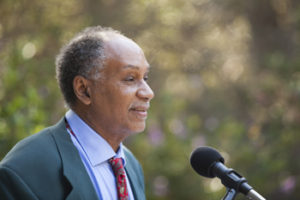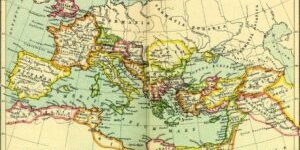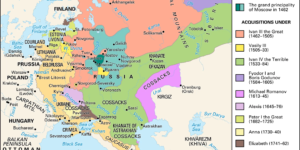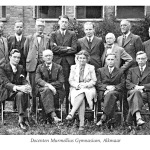White Freedom: An Interview With Tyler Stovall
No Comments yetThe idea of freedom has a contradictory legacy in the modern western world: it’s all about whiteness mixed with practices of racial inequality and discrimination, argues Tyler Stovall, Distinguished Professor of History, Emeritus, at the University of California at Santa Cruz, in his newly published work White Freedom: The Racial History of an Idea (Princeton University Press, 2021). In the interview that follows, Tyler Stovall discusses the main thesis of his book, highlights the difference in the way conservatives and progressives view freedom, and talks the return of white supremacy in American politics.
C. J. Polychroniou: You have just published a new book, titled White Freedom: The Racial History of an Idea, in which you argue that freedom has been defined in the western political tradition in racial terms. Can you elaborate a bit on this thesis?
Tyler Stovall: I argue that in America, France, and other Western societies in the modern era freedom is central to white racial identity and that whiteness is an essential component of freedom. To be free is to be white, and to be white is to be free. The book explores how societies based on liberty, like the French and American republics, could without contradiction also practice racism against peoples of color because those who were not white by definition could not be free.
It also shows how the clarion call of liberty in these societies derived its force in part from its appeal to race.
CJP: Didn’t gender and class also play key roles in the social construction of freedom?
TS: Since those are not the primary subjects of this book my answer to this question is necessarily limited, but class and gender certainly also played an important role. One need only consider the history of voting as a political right in the modern era. In many Western democracies the franchise was only gradually granted to people without property, and until the twentieth century it was almost universally reserved for men. The right to property, a key component of freedom in capitalist societies, was also highly gendered, and more generally if one did not have property (the case of most working people in the modern era) one could not truly be free.
CJP: Isn’t it also the case that freedom has always meant something different to conservatives and progressives?
TS: To a certain extent, yes: conservatives have traditionally focused on individual liberty and negative ideas of freedom, freedom from, whereas progressives have tended to emphasize the freedom of groups from oppression based on class, race, gender, and other identities. I would say, however, that in many ways the conservative, individualistic interpretation of freedom has been dominant during the modern era, and that conservatives are more likely than progressives to foreground ideas of freedom in their politics. Many progressives give greater importance to equality than freedom, for example. Also, if you consider the very idea of liberal democracy, which I consider a kind of compromise between these two approaches, conservatives stress liberalism and progressives stress democracy.
CJP: Racism not only remains a major problem in American society, but race relations seem to have gotten worse over the last few years. In fact, we have seen the return of white supremacy in U.S. politics during Donald Trump’s reign of rage and destruction. What’s your explanation for this unsettling socio-political development which threatens the very fabric of American democracy?
TS: I’m not sure I agree with the basic premise of this question, because I don’t think that white supremacy ever went anywhere, and I don’t think it’s necessarily worse now than in the past. For example, what strikes me most about the Black Lives Matter movement is how many whites support it, in a way that would have been hard to imagine ten years ago. That said, there certainly remains lots of racism in American society, and I think it is due to the combination of two factors.
First, American society and culture are growing more multicultural and diverse, and second the living standards of many Americans, including working class whites, have declined significantly since the 1970s. Traditionally in American society lower class whites who had very little property or social status could take comfort in their whiteness and white privilege, but now that seems to many to be increasingly jeopardized. Those whites who invaded the Capitol building on January 6, 2001 felt that their communities and their futures were threatened by the new contours of American life, and as we have seen in such situations people react violently.
CJP: Given the thesis of your book, namely, that racism and freedom are intertwined in the western political tradition, isn’t there a need therefore to redefine freedom?
TS: I would say rather that it is important to reinforce universal ideas of freedom that have also existed in the West, and bolster their rejection of white freedom. For example, in my book I discuss the ways in which the Statue of Liberty has been an icon of white freedom, symbolizing the ability of European immigrants to achieve white privilege in America. My preferred solution to that would not be to take down Lady Liberty, but rather to underscore other kinds of liberty. The Statue of Liberty and the myths around it tend to obscure the fact that New York was one of America’s great slave ports, so why not have another statue in New York harbor that commemorates slave rebellions in New York as symbols of liberty? Many people in America and throughout the world have rejected white freedom and fought for liberty for all, and it’s important to honor their struggles.
—
C.J. Polychroniou is a political economist/political scientist who has taught and worked in universities and research centers in Europe and the United States. His main research interests are in European economic integration, globalization, the political economy of the United States and the deconstruction of neoliberalism’s politico-economic project. He is a regular contributor to Truthout as well as a member of Truthout’s Public Intellectual Project. He has published several books and his articles have appeared in a variety of journals, magazines, newspapers and popular news websites. Many of his publications have been translated into several foreign languages, including Croatian, French, Greek, Italian, Portuguese, Spanish and Turkish. He is the author of Optimism Over Despair: Noam Chomsky On Capitalism, Empire, and Social Change, an anthology of interviews with Chomsky originally published at Truthout and collected by Haymarket Books.
Comments
Leave a Reply









